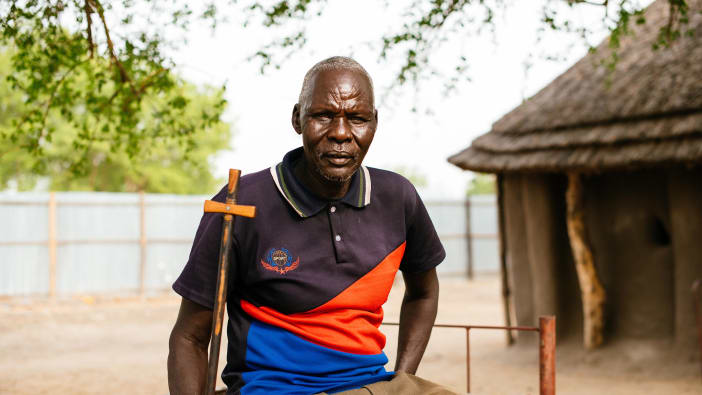Land, livestock, roads and services are often destroyed during armed conflict or natural disasters. Farmers need to know what kind of action they can take to rebuild their farms and businesses. Recovering from these crises is easier when people share the load.
In Sierra Leone, farmers have been hit hard by conflict. Many farmers have lost crops and livestock. Amina is a farmer from the south of Sierra Leone. Like many others in her area, she has needed to rebuild her farm. Poor transportation and a lack of local services have made things even more difficult.
Amina is a widow with three children to feed. She needed tools and seeds to start planting again. Tools and seeds are expensive and she has little money. If she could just get the money to buy these things, she could begin to farm again. She applied for a bank loan, but the bank refused because she did not own a house or land. Amina despaired. But the next day, when the sun was rising, she had an idea. She invited a group of local people to her home. They all shared her dismay about their situation. Others had also tried to get a loan and were refused.
Amina suggested forming a group to start a revolving credit fund. ‘Every month we will all contribute a small amount of money to the fund. Every month all the money collected is given to one person in the group. That person can buy whatever they need. The next month, another person receives all the money in the fund, until everyone has had a chance to receive the fund.’
One of Amina’s neighbours asked what would happen if someone could not make a payment one month. They agreed that someone else would pay that person’s contribution until they could pay them back. They decided to make a simple written agreement that they would all sign and to keep a record of all contributions. ‘Everyone must be honest to make this plan work,’ said Amina.
Twelve people agreed to try Amina’s idea. People used the money to buy a cow, some chickens, and to hire a truck to take produce to market. When it was Amina’s turn, she bought tools and seeds. In just one year, they saw real improvements in their farms and in their lives.
Developing Countries Farm Radio Network, Package 67, No 4 June 2003







